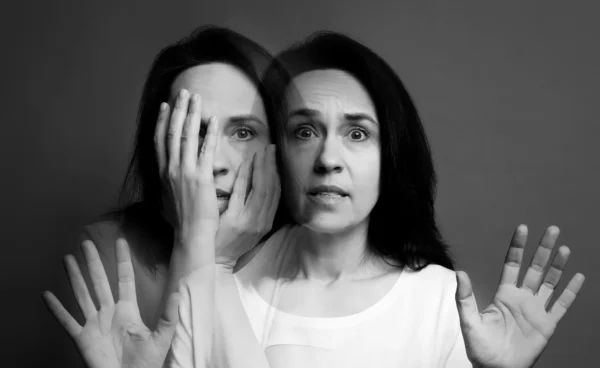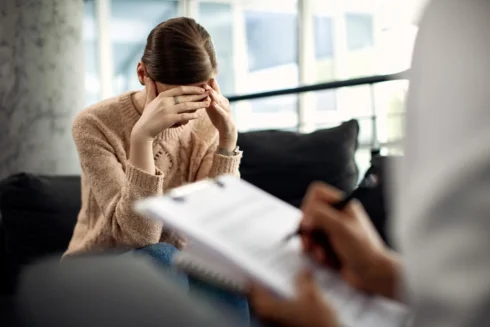- What Is Bipolar Disorder?
- What Is Borderline Personality Disorder?
- Key Differences Between Bipolar Disorder and Borderline Personality Disorder
- 1. Mood Episodes vs. Emotional Instability
- 2. Triggers
- 3. Impulsivity
- 4. Treatment Approaches
- Common Misconceptions About Bipolar Disorder and BPD
- 1. “They’re the Same Thing”
- 2. “People with Bipolar Disorder Are Always Moody”
- 3. “BPD Is Just Attention-Seeking”
- Specific Challenges: Bipolar Disorder
- Bipolar Falling in Love Quickly
- What Happens When You Ignore a Bipolar Person
- Bipolar Blackout Symptoms
- Specific Challenges: Borderline Personality Disorder
- Fear of Abandonment
- Emotional Dysregulation
- Treatment Options
- Bipolar Recovery Centers
- Can I Get a Medical Card for Bipolar Disorder?
- Can Drug Abuse Cause Bipolar Disorder?
- What If a Non-Bipolar Takes Lamotrigine?
- How We Care for Patients at 911 Detox Center
- Conclusion
Mental health is having its long-overdue moment in the spotlight, and honestly, it’s about time. But with so much information floating around, it’s easy to get confused, especially when it comes to conditions like bipolar disorder and borderline personality disorder (BPD). Both are often misunderstood, misdiagnosed, and even used interchangeably (spoiler: they’re not the same). If you’ve ever wondered, “What’s the deal with bipolar disorder vs borderline personality disorder?”—you’re in the right place.
This blog post is your ultimate guide to understanding these two conditions, their differences, and how they impact people’s lives. We’ll also dive into some specific topics like bipolar falling in love quickly, bipolar blackout symptoms, and even what happens when you ignore a bipolar person. Plus, we’ll touch on treatment options, including bipolar recovery centers and whether you can get a medical card for bipolar disorder.
So, grab your favorite drink, get comfy, and let’s break it all down.
What Is Bipolar Disorder?
Let’s start with the basics. Bipolar disorder is a mental health condition characterized by extreme mood swings. These swings include emotional highs (mania or hypomania) and lows (depression). It’s not just about having a bad day or feeling super energetic—it’s a chronic condition that can significantly impact someone’s life.
There are a few types of bipolar disorder:
- Bipolar I: Defined by manic episodes that last at least 7 days or are so severe that hospitalization is required. Depressive episodes often occur too.
- Bipolar II: Involves a pattern of depressive episodes and hypomanic episodes (less severe than full-blown mania).
- Cyclothymic Disorder: A milder form with periods of hypomania and depression that last for at least 2 years.
One of the most challenging aspects of bipolar disorder is how it affects relationships. For example, bipolar falling in love quickly can happen during manic episodes, where someone might feel an intense connection or infatuation. But when the episode ends, those feelings might fade, leaving both parties confused and hurt.
What Is Borderline Personality Disorder?
Now, let’s talk about borderline personality disorder (BPD). Unlike bipolar disorder, which is primarily a mood disorder, BPD is a personality disorder characterized by instability in relationships, self-image, and emotions. People with BPD often experience intense fear of abandonment, have difficulty regulating emotions, and may engage in impulsive behaviors.
While bipolar disorder involves distinct episodes of mania and depression, BPD is more about chronic emotional dysregulation. Think of it as a constant rollercoaster of emotions rather than distinct highs and lows.
Key Differences Between Bipolar Disorder and Borderline Personality Disorder
1. Mood Episodes vs. Emotional Instability
The biggest difference between bipolar disorder and BPD is the nature of mood changes. In bipolar disorder, mood episodes (mania, hypomania, depression) are distinct and can last for days, weeks, or even months. In BPD, emotional shifts are more rapid and often triggered by external events, like a perceived rejection or conflict.
2. Triggers
While bipolar disorder episodes can occur without an obvious trigger, BPD symptoms are often tied to interpersonal stressors. For example, when a bipolar person ignores you, it might be due to a depressive episode, whereas someone with BPD might ignore you out of fear of abandonment or anger.
3. Impulsivity
Both conditions can involve impulsive behavior, but the reasons differ. In bipolar disorder, impulsivity is often tied to manic episodes (e.g., spending sprees, risky decisions). In BPD, impulsivity is more about trying to cope with intense emotions (e.g., self-harm, substance abuse).
4. Treatment Approaches
Treatment for bipolar disorder typically involves mood stabilizers, antipsychotics, and therapy. BPD, on the other hand, is often treated with dialectical behavior therapy (DBT) and other forms of psychotherapy. Medications may be used, but they’re not the primary treatment.
Common Misconceptions About Bipolar Disorder and BPD
1. “They’re the Same Thing”
Nope. While both involve mood instability, bipolar disorder and BPD are distinct conditions with different causes, symptoms, and treatments.
2. “People with Bipolar Disorder Are Always Moody”
Not true. People with bipolar disorder can have periods of stability between episodes.
3. “BPD Is Just Attention-Seeking”
This is a harmful stereotype. People with BPD are struggling with intense emotions and often have a history of trauma.
Specific Challenges: Bipolar Disorder
Bipolar Falling in Love Quickly
During manic episodes, someone with bipolar disorder might feel an intense connection to someone new. This can lead to impulsive decisions, like rushing into a relationship. However, once the episode ends, those feelings might fade, causing confusion and heartbreak for both parties.
What Happens When You Ignore a Bipolar Person
Ignoring someone with bipolar disorder can exacerbate feelings of isolation, especially during a depressive episode. It’s important to approach the situation with empathy and understanding.
Bipolar Blackout Symptoms
Some people with bipolar disorder report memory gaps or “blackouts” during manic episodes. This can be due to the intensity of the episode or substance use.
Specific Challenges: Borderline Personality Disorder
Fear of Abandonment
People with BPD often have an intense fear of being abandoned, which can lead to clingy or erratic behavior in relationships.
Emotional Dysregulation
Rapid mood swings are a hallmark of BPD, but they’re usually tied to specific triggers, like a perceived rejection.
Treatment Options
Bipolar Recovery Centers
For those struggling with bipolar disorder, specialized bipolar recovery centers can provide comprehensive treatment, including medication management, therapy, and support groups.
Can I Get a Medical Card for Bipolar Disorder?
In some states, bipolar disorder qualifies for a medical marijuana card. However, it’s important to consult with a healthcare provider, as marijuana can interact with mood stabilizers.
Can Drug Abuse Cause Bipolar Disorder?
While drug abuse doesn’t directly cause bipolar disorder, it can trigger episodes in people who are already predisposed to the condition.
What If a Non-Bipolar Takes Lamotrigine?
Lamotrigine is a mood stabilizer used to treat bipolar disorder. If someone without the condition takes it, they might experience side effects like dizziness or rash, but it won’t “cure” anything.
How We Care for Patients at 911 Detox Center
At 911 Detox Center, we understand that bipolar disorder is more than just a diagnosis—it’s a deeply personal experience that affects every aspect of a person’s life. That’s why our approach to treatment is holistic, compassionate, and tailored to each individual.
Our team of experts provides a range of services, including:
- Medication Management: Ensuring that each patient receives the right medications at the right doses.
- Therapy: Offering evidence-based therapies like cognitive-behavioral therapy (CBT) and dialectical behavior therapy (DBT).
- Support Groups: Creating a safe space for patients to share their experiences and connect with others.
We believe in treating the whole person, not just the symptoms. Whether you’re struggling with bipolar disorder, BPD, or another mental health condition, we’re here to help you find stability and hope.
Conclusion
Understanding the differences between bipolar disorder and borderline personality disorder is crucial for getting the right diagnosis and treatment. While both conditions involve mood instability, they’re distinct in their causes, symptoms, and treatment approaches.
If you or someone you love is struggling with bipolar disorder, BPD, or any other mental health condition, know that help is available. From bipolar recovery centers to specialized therapies, there are countless resources to support you on your journey to recovery.
Thanks for sticking with me through this deep dive! If you found this post helpful, be sure to explore our other articles on mental health, addiction, and recovery. And remember, you’re not alone—help is just a click away.




